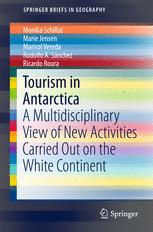

Most ebook files are in PDF format, so you can easily read them using various software such as Foxit Reader or directly on the Google Chrome browser.
Some ebook files are released by publishers in other formats such as .awz, .mobi, .epub, .fb2, etc. You may need to install specific software to read these formats on mobile/PC, such as Calibre.
Please read the tutorial at this link: https://ebookbell.com/faq
We offer FREE conversion to the popular formats you request; however, this may take some time. Therefore, right after payment, please email us, and we will try to provide the service as quickly as possible.
For some exceptional file formats or broken links (if any), please refrain from opening any disputes. Instead, email us first, and we will try to assist within a maximum of 6 hours.
EbookBell Team

5.0
88 reviewsThis book discusses the expansion of new activities carried out in Antarctica and the focus among treaty parties on the perceived challenges posed by adventure tourism in the region. Shedding light on the latest trends and the modus operandi of all parties involved, it draws attention to new elements in the debate on how tourism and environmental protection can best be reconciled, with tourism in Antarctica rapidly increasing in recent decades. As far as technical practice and visitor guidance are concerned, the challenge facing tour operators lies in determining whether tourism has a negative or positive impact on the environment.
The individual chapters address the development of polar tourism in terms of numbers, types and activities. The International Association of Antarctica Tour Operators, which advocates and promotes the practice of safe and environmentally responsible travel to the Antarctic, is also part of this study. In this context, special attention is paid to its strategies relating to adventure tourism – including both deep-field activities and those additional or new activities launched from traditional ship or yacht-based platforms. The analysis includes aspects of risk management and environmental considerations, as well as views on the cultural perspectives of Antarctica.